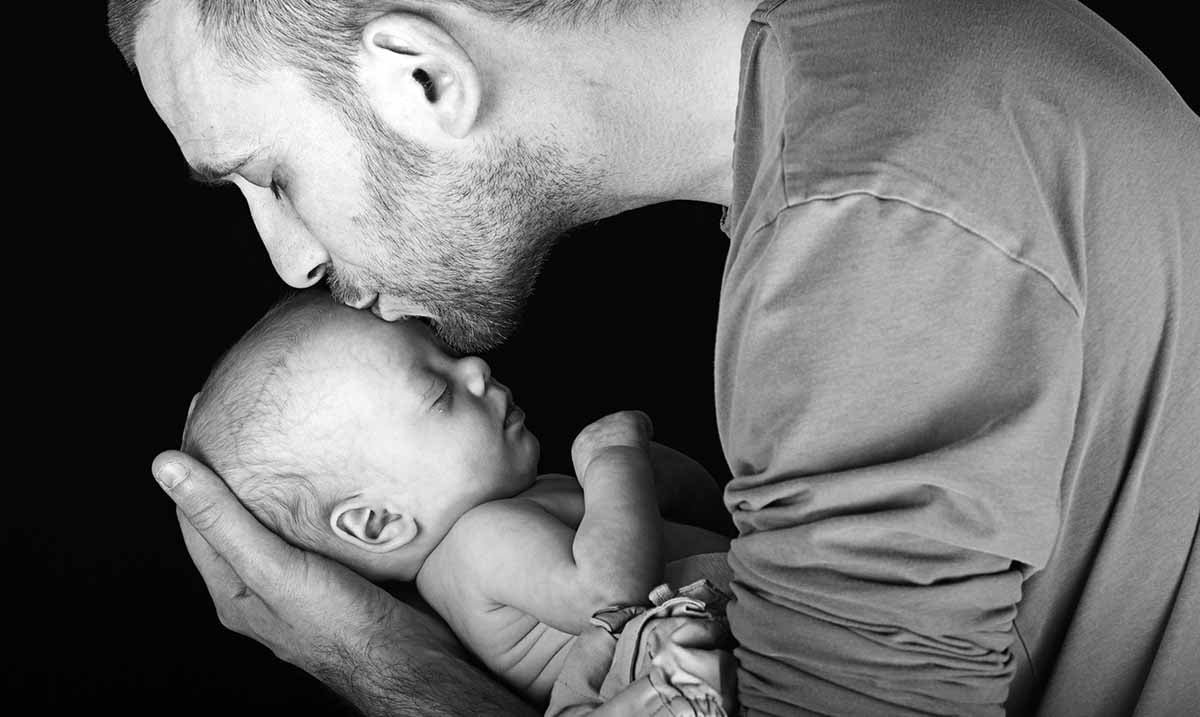Parenthood is a fascinating blend of genetics and environment. While children inherit genetic material equally from both parents, certain traits and characteristics are more likely to be passed down from fathers due to the unique nature of paternal DNA and its influence on specific traits. In this comprehensive article, we explore 20 inherited traits and behaviors from fathers, with each point delving deep into the science and impact of these inheritances.
1. The Shape of the Face
Children often inherit facial structure, including jawline, cheekbones, and overall face shape, from their fathers. Genetic studies show that dominant genes from the paternal side can significantly influence these physical features. For example, a strong jawline or a square face might be traits passed down from the father. These inherited features often form the first visible connection between a father and child.
2. Height and Build
A father’s genes play a significant role in determining the height and overall body structure of a child. While a mother’s influence is also present, paternal genes often dominate in determining tallness. If a father is tall and lean, there’s a good chance his child will exhibit similar physical traits, especially with proper nutrition during childhood.
3. Eye Color and Shape
The father’s genetic contribution to a child’s eye color and shape is determined by dominant and recessive gene patterns. For instance, if the father has a dominant eye color such as brown, it’s more likely to be passed on, even if the mother has a recessive eye color like blue. The shape of the eyes, whether almond-shaped or wide, may also be inherited from the paternal side.
4. Hair Texture and Growth Patterns
Hair type, including its texture (straight, wavy, or curly) and growth patterns (such as a widow’s peak or early balding tendencies), is often inherited from fathers. If a father has a family history of early hair loss, it can increase the likelihood of similar patterns in his children, especially sons.
5. The Sound of Their Voice
The tone and pitch of a child’s voice are influenced by genetics, and fathers often pass down their vocal characteristics. A deep, resonant voice might be a paternal gift, shaped further by puberty when inherited vocal traits manifest more clearly.
6. Musical Talent or Rhythmic Abilities
Scientific studies suggest that fathers may pass on genes associated with musical aptitude or rhythm. If a father has a natural ear for music or is talented in playing instruments, it’s possible that these abilities are encoded in the child’s genetic makeup, allowing them to develop similar skills with practice.
7. Dominance in Handedness
Whether a child is right-handed or left-handed often has a genetic component, with the father’s influence sometimes playing a decisive role. Research indicates that left-handedness is more likely to be inherited when there’s a family history of it, and this trait can often be traced back to the paternal line.
8. Metabolic Rate and Body Composition
A father’s genetic influence can impact a child’s metabolic rate, determining how efficiently they burn calories and store fat. This influence can shape a child’s body composition and propensity for physical fitness, particularly when paired with environmental factors like diet and exercise.
9. Facial Expressions and Microexpressions
Many children naturally mimic their father’s facial expressions, but research suggests some of these may be hardwired. Genetic inheritance can influence the way emotions are physically displayed, such as the way a father raises an eyebrow or smiles in a specific manner.
10. Teeth Structure and Alignment
Dental traits, including teeth spacing, alignment, and susceptibility to certain oral conditions, are often passed down from fathers. For example, if a father has a noticeable gap between his front teeth or a predisposition to cavities, these traits might appear in his children.
11. Immune System Strength
Genetic material from the father contributes to the development of a child’s immune system. Fathers can pass down genes that influence how the immune system responds to infections or environmental allergens, potentially affecting the child’s overall health.
12. Risk for Certain Genetic Conditions
Some genetic disorders or predispositions to health conditions are more likely to be inherited from fathers. For instance, conditions linked to the Y chromosome, such as specific types of color blindness or male-pattern baldness, are exclusively passed down from fathers to their sons.
13. Athletic Abilities and Stamina
Fathers who excel in sports or physical activities may pass on genes associated with strength, endurance, and coordination. These traits, combined with an active lifestyle during childhood, can significantly influence a child’s athletic potential.
14. Skin Tone and Complexion
A child’s skin tone is a blend of both parents’ genetic contributions, but the father’s genes can play a dominant role in determining pigmentation. This influence extends to characteristics like freckles, birthmarks, or the tendency to tan or burn in sunlight.
15. Shape of Hands and Feet
The structure and proportions of hands and feet often come from the father’s side. Traits like long fingers, wide feet, or a specific arch shape can all be traced to paternal genetics.
16. Emotional Resilience
While emotional traits are influenced by upbringing, certain aspects of emotional resilience or sensitivity can be inherited from fathers. A calm and composed father might pass on these emotional tendencies, shaping how a child handles stress or conflict.
17. Sense of Humor
Interestingly, a father’s sense of humor and comedic timing can leave a genetic mark. If a father is known for his wit or playful personality, these traits may manifest in the child’s disposition, often combined with shared experiences of humor.
18. Bone Structure and Density
The strength and density of bones are influenced by genetic factors, with fathers contributing significantly to these traits. This inheritance can determine a child’s posture, bone health, and even susceptibility to fractures.
19. Eye for Detail or Problem-Solving Skills
Certain cognitive abilities, such as attention to detail, logical reasoning, or problem-solving skills, may be inherited from fathers. These traits can play a significant role in academic and professional success, especially when nurtured through education and experience.
20. Risk-Taking Tendencies
Behavioral studies indicate that risk-taking behaviors and adventurous tendencies are partly genetic. Fathers who exhibit boldness or a love for challenges might pass these traits on, influencing a child’s personality and approach to life.
Final Thoughts
Understanding the traits children inherit from their fathers not only highlights the fascinating role of genetics but also underscores the unique bond between a father and child. While genetic inheritance shapes many aspects of a child’s identity, nurturing and environment remain equally important in developing their full potential.





Leave a Comment